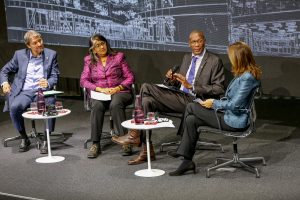
More than 20 professors, researchers and students work directly on SDG 10. Their work includes academic publications, academic and executive education, and engagement in external initiatives. We also offer an Executive Master in Development Policies and Practices, as well as academic Masters and PhD programmes and courses on International Economics.


Policy Preferences and Political Behaviour of Citizens at Times of Risk Inequalities

Redefining Humanitarianism in the Making

Finance & Development Expertise: The Corona Spreads

Finance & Development Expertise: Debt Sustainability in Africa

The Global Compact for Safe, Orderly and Regular Migration: a kaleidoscope of international law

Migration’ and its (im)possible demands: the situation of ‘return’ in Cuba

The pandemic and the urban migrant

Political Economy, History, & International Law

Public Investment for the Recovery: IMF October 2020 Fiscal Monitor

Mapping ‘Care Chains’ in Export Horticulture in Senegal: Why does it matter to understand Labour Migration and Social Reproduction?

Keeping up with Kerala’s Joneses : Relative Deprivation and Conspicuous Consumption among Kerala’s Gulf Emigrants
Discover more SDGs
View moreGoal 10 calls for “reducing inequalities in income as well as those based on age, sex, disability, race, ethnicity, origin, religion or economic or other status within a country. The Goal also addresses inequalities among countries, including those related to representation, migration and development assistance” as put by the UN Sustainable Development Knowledge Platform. Read more about Goal 10